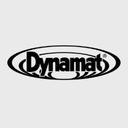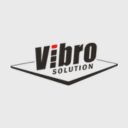Finding the right sound deadening materials for your car can be a sticky situation sometimes (literally). There are a ton of options out there! We set out to find which ones are made in the USA. A good sound deadening setup can help you eliminate rattles, block noise, and absorb the natural vibrations in your car. Below are our findings on different types of American made sound deadening materials and tons of details about what to consider when making this purchase.
Complete List of Sound Deadening Brands Made in the USA

A US-based soundproofing company that produces some of the best sound deadening materials in the country, Second Skin Audio offers excellent value, and they take their material quality seriously.
Second Skin Audio’s customer service team quickly responded to our questions and told us they ship directly from their U.S. factory super frequently, so their sound deadening mats aren’t just sitting in a warehouse for months at a time before they get to you.
Second Skin sells butyl rubber sound deadening mats and a liquid sound deadener, Second Skin Audio sells Spectrum Liquid, which can be used in tandem with mats to cover some harder-to-reach places around your vehicle, inside or out. Second Skin Audio has also started to produce some home soundproofing products, all made in the USA as well.

Dynamat Xtreme is another sound proofing company that makes all of their products in the USA. They sell a solid elastomeric butyl and aluminum mat option for sound deadening. They offer quality materials and have a heat rating of 300 F. These products may be a bit expensive, but they have a good reputation for quality products.

Hushmat is a company that sells sound-deadening and thermal insulation products and prides itself on ease of application. Their foil has smoother edges than other mats on the market, sticks fairly well, and is easy to cut with a simple pair of scissors.
One of their bigger selling points is they offer tons of sound-deadening kits for various makes, models, and years of vehicles. So, if you don’t want to spend time calculating the square footage you need to cover your car, HushMat might have an option for you. Their foil is a little thinner than others, so it doesn’t offer the most sound-blocking performance, but it gets the job done (the advantage being the edges of the foil are smoother).

LizardSkin is another American-made sound-deadening spray option. These are some of the easiest sound-deadening products to install as you simply spreay it on and wait for it to dry.
Their product is non-toxic and class-A fire rated as well. LizardSkin also sells a “SuperPro Application Kit” with everything you need for installation, including a spray gun. Note: if you’re also using their Ceramic Insulation product, you must apply their Sound Control spray first.

Vibro Solution makes great vibration and sound dampening products out of their headquarters in Austin, Texas. They also offer damping kits for specific car models if you need an all-in-one package. Whether you’re doing a new audio system installation in your car, converting a van into a full-time home, or something entirely different, Vibro Solution should have a product for you to help with noise and vibration issues.
What To Look Out For
Mats vs. Sprays
So, what’s the difference between getting a sound-deadening mat vs. a spray or liquid solution? In most use cases, they are actually pretty similar in terms of quality, and many people choose to use them in tandem. The best mats are made from butyl rubber, aluminum, and a strong adhesive. They can be used anywhere there’s metal on your car. Sprays and liquids are typically used for those hard-to-reach places like wheel wells, under the fender, and under the car. When used in the vehicle’s interior, the car should usually be stripped down to the metal. Both are viable options, and it really just comes down to your personal preference on the application.
Material Quality
Material quality is super important when it comes to sound-deadening materials. We mentioned it briefly before, but you want to avoid products that include asphalt at all costs. A lot of low-quality manufacturers will include saving on cost, but it doesn’t perform as well and has significant health concerns. Asphalt has been labeled a class 2b carcinogen by the IARC, because of the chemicals it releases when heated. Cars get hot – seems like a bad combo! This is a clear case of avoiding the cheaper, overseas-made alternatives if you can afford to. Why turn your car into an asphalt lab test when there’s real noise (get it?) out there about the risks? Pick one of the high-quality options. Here’s a nice video from a great American made company, Second Skin Audio, on why you want to avoid materials like asphalt. They also have a bunch of really helpful guides on installing sound deadening and heat insulation materials in different parts of your vehicle, so be sure to check out their help section (the “Owner’s Manual” on their site).
The best sound-deadening materials are made with a base of butyl rubber. You’ll typically see that paired with aluminum for mats, and a water-based viscoelastic polymer for liquids and sprays.
Also consider the heat rating of all the products you research. It’s a well-known fact that cars get hot, so you want to protect your investment and hard work with a sound-deadening material that is protected to at least 300 F, well out of the range of peak engine and exhaust temperatures.
Thickness
The thickness of a sound-deadening mat or spray has a direct correlation with the amount of structural and airborne noise you’ll be able to block out. In most applications, you’re going to want at the very least 40mil, but as a general rule – thicker products yield better results.
Application Process
Having an easy application process was a big consideration for us. Most of you are going to be installing these materials yourself, so we don’t want that process to be overly complicated and put you at risk of damaging your car.
More specifically, look at how easy it is to:
- Unpackage the products
- Prep the surface of the vehicle
- Cut the mats and stick them to various surfaces
- Brush on and spray the liquid products
- Clean up residue
Price Per Square Foot
Comparing prices for these types of materials can be super confusing – every manufacturer offers different square footage packages and pricing models. In our tables above, we broke down all of our research into a common per square foot calculation. We found that many of the non-American-made products had a much lower price per square foot, but we also were unimpressed and sometimes concerned by their quality. We felt like we found a pocket of really good value with Second Skin Audio and some other brands when we compared them to the competition.
Sound Deadening Materials Not Made in the USA
During our research, we came across several brands that are not making their sound-deadening equipment in the USA. You can see the full list of brands below as well as where their products are being made:
- Kilmat – Made in Russia.
- Noico – Made in Russia.
- Uxcell – Made in China.
- Siless – Made in Ukraine and Russia.
Related Research
If you’re looking for other American-made automotive products, check out our other guides:

